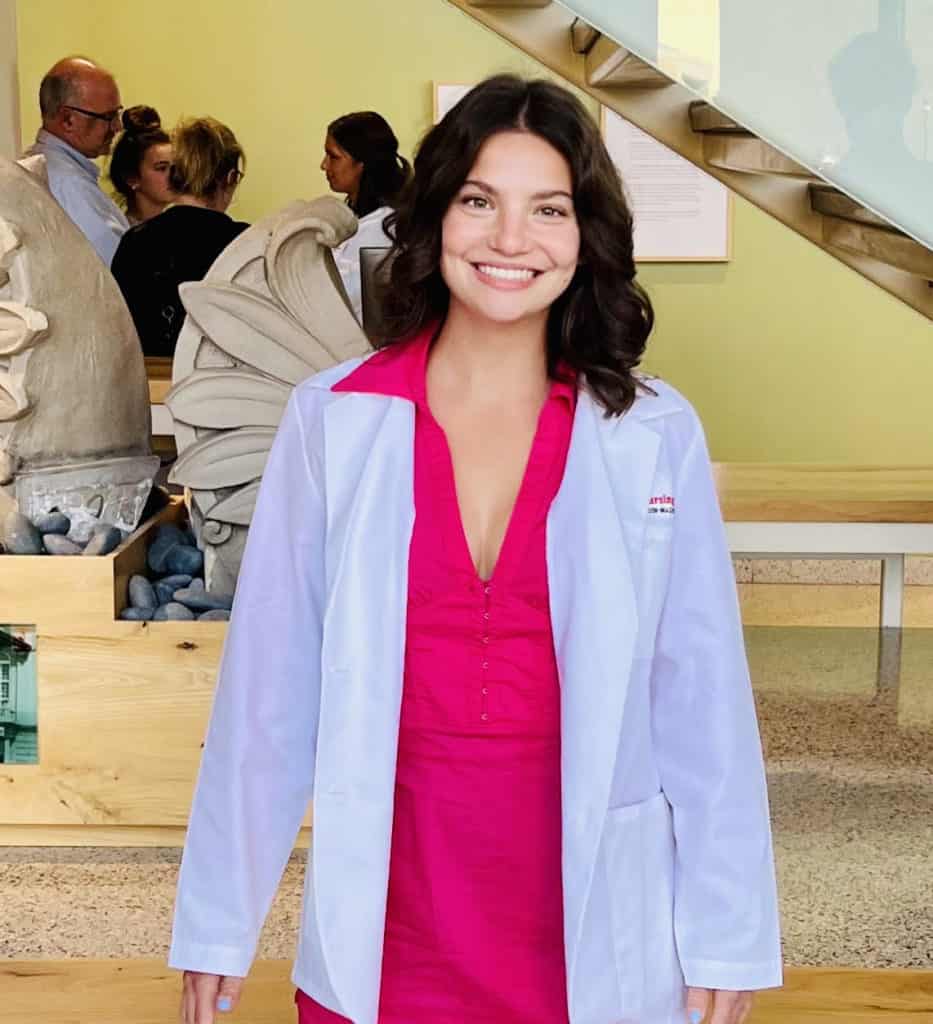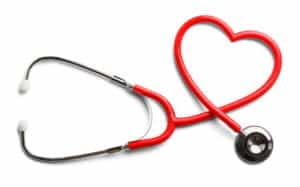10 Questions for a BSN Candidate with CIT Consultant, Anne Weber
For those considering a career in nursing, there’s no better way to learn than first-hand from an up-and-coming nurse. Several years ago, I never would have guessed that my daughter would go into nursing. Now, with just a couple months left in her training, she’s both excited and passionate about her career. See what Isabelle Weber, BSN candidate, has to say about her journey into nursing.

Isabelle Weber, BSN Candidate, University of Wisconsin-Madison Class of 2024
1. Did you enter college knowing you wanted to go into nursing?
No, in fact I went into college thinking I wanted to become a physician. I knew I wanted to go into the healthcare field, so choosing to be on the “pre-med” track seemed fitting.
2. How did you decide upon nursing?
Once I began my studies at UW-Madison I was surrounded by a myriad of resources to explore different healthcare professions. Through a combination of the school’s resources, my own research, and some soul searching, I was able to determine what was important to me and what healthcare professions aligned with that. Eventually, I chose to become a nurse because I want to be at the center of patient-care. Nurses spend more time with patients than any other healthcare professional. A nurse is required to know the patient more intimately than anyone else, and they are required to advocate for individuals during times where they’re most vulnerable. Another huge draw for the nursing field is the variety of avenues available for work settings, roles, upward mobility, and continuing education. I know that I will have flexibility and job security throughout my career to pivot if/when I am feeling burned out from a certain position. Finally, a huge component of choosing nursing for me was the logistics. I knew that I didn’t want to spend my 20s and 30s in a grueling training program and in piles of debt. Nursing has provided me with the ability to work right out of college with the opportunity to go back to school for a masters or doctorate degree at any point.
3. Why/how did you choose a 2 year traditional BSN program?
After choosing nursing, I considered a few different pathways which you can read about in Undergraduate Pre-Health Tracks. The traditional BSN program at UW-Madison was definitely my top choice for a variety of reasons: it makes finishing nursing school within four years possible, the program and school has a strong reputation throughout the country, and it allowed me to stay in Madison and graduate with my college friends. I also considered direct-entry master’s and accelerated BSN programs, however, both of which would have required me to graduate with a bachelor’s degree in another field first. Thus, when I was admitted to UW’s traditional BSN program on my first try it felt like a no-brainer to accept.
4. A two-year program typically doesn’t allow for a junior year study abroad, was that a consideration for you?
Studying abroad was an opportunity that I knew I wanted to take advantage of before I even started college. So when I picked nursing, I was worried about how studying abroad would work. I decided to pursue a summer study abroad program in Copenhagen between my sophomore and junior years. I took a three week course focused on the Dutch and Danish healthcare systems that counted toward my minor in global health. Even though I had a little bit of FOMO when my friends studied abroad junior year, I feel very fulfilled by my experience abroad and am grateful that I was able to make it happen.
5. Outside of academic prerequisites, what other experiences did you get prior to applying to programs?
The biggest suggestion that I have for someone considering nursing is to become a CNA (certified nursing assistant). Once I started thinking seriously about nursing, I got my CNA license and took a job at a local assisted-living facility. Though this job was incredibly grueling, I learned so much about patient care and the role of a nurse. During my sophomore year, I transitioned to an inpatient setting, and began working as a nursing assistant on a general medicine unit at a large hospital in Madison. Both of these experiences helped to bolster my resume and application to nursing school, and taught me a lot about the basics of nursing. I also volunteered in a dementia research program, completed research, and took leadership positions in my pre-health student organization and sorority.
6. What was the most difficult aspect of your BSN?
Unexpectedly, the most difficult part of my nursing program has probably been the schedule. Nursing school prepares you to be in the field in a variety of ways that are both physically and mentally taxing. Not only are we required to learn and apply large volumes of didactic material, we also spend a lot of time in the hospital applying our skills. Arriving at the hospital by 5:45am is not unusual for a nursing student, and this early schedule forced me to reconfigure my routine as a college student. While most of my friends are up late into the evening and have classes later in the morning, I now know how important it is for me to get to sleep earlier so I can show up best for my patients in the morning.
7. Do you consider yourself a typical nursing student? What is your cohort like?

No, I would not consider myself a “typical” nursing student, and I am not sure that kind of person exists (at least within my program). I’ve found that my cohort of 160 nursing students contains a highly diverse group of individuals differing in age, gender, race, ethnicity and religion. Unlike classes that I had taken in my “pre-nursing” years, my nursing classes contained students from all walks of life. Although we have students who are in their fourth or fifth years as undergraduates, we also have folks in their 30s, 40s and 50s who are pursuing career changes. The nursing workforce is extremely diverse, and I think that my program does a great job of representing this within its cohorts.
8. What will you do upon graduation?
After graduation, I will take my boards (an exam called the NCLEX) and then begin my first job as a nurse. I have accepted a position at a level one trauma center in an adult ICU that treats trauma, medical and surgical patients. I completed my nurse externship (an internship before the final year of nursing school) on this particular unit and fell in love with the patient population and staff. I am really excited to begin my career on a unit with such high acuity and diversity.
9. What are the options open to you as a BSN prepared nurse? Will you pursue graduate school?
There are so many opportunities available to my peers and I upon graduation from nursing school. Many of us are choosing to work in hospitals in varying units like oncology, cardiology, surgery, ICU, and pediatrics. However, outpatient clinics, schools, prisons, mental health facilities and even the military are all options for us as soon-to-be registered nurses. In terms of graduate school, there are also several options. I know RN’s that have pursued masters and doctorate degrees to become nurse educators, nurse practitioners, nurse researchers, and nurse leaders. I plan to pursue a DNP (Doctorate of Nursing Practice) program to become a nurse practitioner after working for a few years as an RN.
10. If you could change one thing about the field of nursing what would it be?
If I could change one thing about the field of nursing it would actually be the size of our workforce. COVID-19 led to massive burnout among nurses in all settings. The increased number of hospitalized patients led to unsafe patient to nurse ratios and required nurses to work overtime hours frequently. Since 2020 there have been thousands of nurses that have left the bedside or even the profession as a whole. I hope that the future of nursing includes safe patient to nurse ratios, healthy working hours, and a steady stream of new nurses passionate about helping others.
